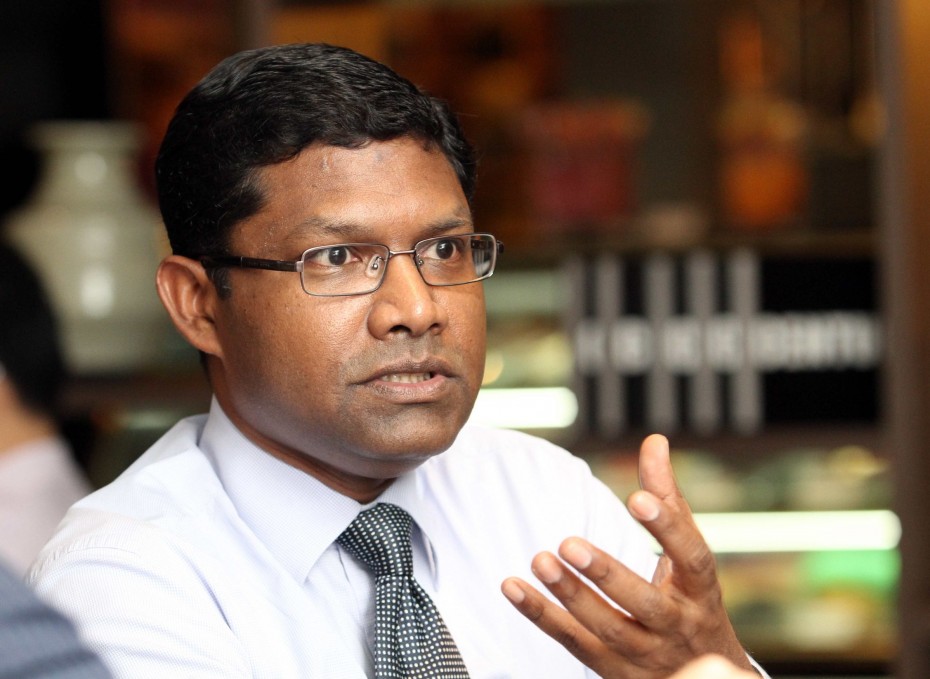AFTER our story on the growing sugar baby culture in Malaysia, we heard about a few former sugar babies who were left so traumatised by their experiences, they needed psychiatric help.
Their stories were in stark contrast to the young sugar babies – male and female – we interviewed back then. As they were relatively new to the game, they were still enjoying the money, expensive gifts and luxury holidays their sugar daddies or mommies were showering on them.
Those who have got out of the game, however, paint a very different picture.
Datuk Dr Andrew Mohanraj, vice president of the Malaysian Mental Health Association, is a psychiatrist who has treated a few of them.
“One of them was locked up for months in an apartment by her sugar daddy,” he said. “She tried to leave him, so he installed grilles around his duplex apartment to confine her, but she managed to escape.”
Dr Andrew said physical abuse is common in such relationships, but the mental and emotional harm could be just as dangerous.
Another former sugar baby, Nadiah (not her real name), ended up in the emergency room after a suicide attempt. She had developed feelings for her sugar daddy, but even though the wealthy Datuk had at one point professed his love for her and proposed marriage, he ended the relationship suddenly.
When he found out why Nadiah, then 23, was in the hospital, he disappeared from her life.
Private university student Wendy, 21, was brought to Dr Andrew after her housemate noticed slash wounds on her wrists and forearms. Turns out her boyfriend had discovered her secret sugar lifestyle and was threatening to expose her. In her despair, she resorted to self-harming.
“She was in love with her boyfriend, but needed a sugar daddy to pay for her education,” said Andrew, adding that she also had to be treated for an addiction to crystalised methamphetamine, a habit she picked up from her sugar daddy.
With the doctor’s help, the women were able to put their sugar lives behind them. Nadiah is now married and has a child, and Wendy now runs a hair salon despite not getting the degree she almost ruined her life to pay for. None of them, however, were willing to speak directly with us. The scars clearly run very deep.
Common problem
The number of young people seeking sugar arrangements appears to be rising both globally and in Malaysia thanks to sugar daddy websites, online forums and classifieds websites. One website, SeekingArrangement.com, had 3.6 million members.
When yours truly went undercover to find a sugar relationship, it was shockingly easy. I received 13 concrete offers from eager sugar daddies within a month.
When those findings were released, the main point of debate on our website (rage.com.my) was whether this culture should be considered prostitution, but clearly, there are plenty of other grave concerns.
Apart from physical and emotional abuse, there’s also the risk of sexually transmitted infections (STIs), substance abuse, blackmail and a deep emotional distrust of father figures. Many of these risks have been documented in studies around the world, particularly in Africa.
But yet, after contacting various women’s organisations, we found that none of them had any experience helping sugar babies. For Sulastri Ariffin, who has been counselling sex workers for over 20 years, it comes as no surprise.
Sugar babies today operate off the radar thanks to the anonymity of the Internet, and the stigma against their lifestyle means very few of them will ever consider seeking help – even when their sugar relationships turn sour.
STI risks
Sugar relationships present a unique risk when it comes to STIs, according to Sulastri, programme manager of Social and Enabling Environment Development (SEED), an organisation that works with marginalised communities.
“The risk of contracting STIs is high because many sugar babies don’t practise safe sex, thinking they are in a ‘stable relationship’,” said Sulastri. “They may not know that their partners have multiple partners.”
And it’s pretty safe to say sugar daddies tend to have more than one sexual partner.
Her hypothesis had already been proven over a decade ago, when AIDS experts at the 2004 International AIDS Conference said sugar relationships were one of the reasons teenaged girls in southern Africa were five times more likely to contract HIV than boys.
In South Africa, the sugar lifestyle was starting to pose so many problems that campaigns were being run to discourage girls from becoming sugar babies.
The health department in KwaZulu-Natal put up over 800 billboards in 2012 to discourage sugar relationships, and they released a statement in January this year saying irresponsible sugar daddies must continue to be “actively confronted and condemned by all sectors of society”.
While local HIV statistics do not take sugar relationships into account (since the problem is not as widespread as it is in Africa), they are still worrying – one in four newly reported cases of HIV in 2010 were from individuals aged 13-29.
As for those who tested positive in their 30s, the Health Ministry suggests that many had probably contracted the virus in their 20s.
Another reason why sugar babies are especially at risk of contracting STIs is the age gap. An edition of the Exchange on HIV/AIDS medical journal published in 2010 said the younger person in cross-generational relationships has less power to negotiate for safe sex.
Add in the pressure to reciprocate after being showered with all kinds of gifts, and you start to get the idea why sugar babies are at risk.
“In our experience, even if the girls asked the men to use protection, the men will just offer more money until they get their way,” said Sulastri.
Addiction
“It isn’t so bad being a sugar baby,” said Puteri, 18, one of the young sugar babies we interviewed for our first story. “It’s not like we’re harming our bodies. It’s just for money.”
Not true.
Aside from STIs, Dr Andrew said many sugar babies could end up getting hooked on illegal substances.
“Sugar babies are often expected to accompany their sugar daddies out and about,” he said. “The girls may feel pressured or are outrightly forced to drink and take illegal substances.
“I have treated a sugar baby who was hooked on drugs and couldn’t leave her sugar daddy. She couldn’t afford the drugs he was supplying her.”
Andrew said the sugar babies and “professional girlfriends” he has treated usually have a similar profile – young, attractive and confident.
“They think they know what they are getting into, they think they can handle this lifestyle, but they’re still young,” he said. Being young, they might not realise that the implications could be far darker than a stint in rehab. As Sulastri said: “It could be the beginning of the end. Many girls start off as sex workers because they need to support their drug habit.”
Ironically, while Puteri and many other girls become sugar babies to help pay their school fees, it may actually end up derailing their studies.

Because sugar babies don’t go to women’s organisations for help, they go undetected and their problems are unsolved until it reaches the point they need psychiatric help.
Sugar daddies can be demanding, so being focused on your studies and future career won’t be easy.
But even if sugar babies do finish their studies and successfully negotiate the sugar life without any physical or emotional harm, that doesn’t mean they’re home free.
In just a few clicks, a sugar daddy can destroy a former sugar baby’s life.
“They will live in constant fear that their past will be exposed. That is a terrible psychological burden,” said Dr Andrew.
He added that sugar babies could end up being unable to develop normal relationships based on reciprocal love. All relationships start becoming “transactions”, which could affect their ability to raise a normal family.
‘Why stigmatise victims?’
Sulastri asks a simple question of those giving sex workers and sugar babies a hard time: “Why isn’t the stigma on the men?”
“The sex trade is all about demand. If there’s no demand, there won’t be supply.”
In the context of sugar relationships, Malaysians too often stigmatise the sugar babies, but rarely the sugar daddies or mommies who are really the ones in control.
Instead of judging them, the best way to deal with the problem is to have open discourse, said Sivananthi Thanenthiran, executive director of the Asia-Pacific Resource and Research Centre for Women (Arrow).
“Is this lifestyle primarily driven by economic conditions, and they feel that this is the best option for them? Or is it because they have been taught gender roles and relationships which are based on a transactional basis?” she asked.
“I strongly feel there is a need to ask and discuss why these girls would choose such a pathway.”
In South Africa, those questions are already beginning to be answered.To address the issue, they’ve found that instead of making sugar relationships taboo, you should be empowering women to achieve financial security.
Teenage girls in poor families who received a single childcare grant were far less likely to have sex with sugar daddies, found a study published in medical journal The Lancet in November 2013.
“Child support grants do not make teenagers more sensible when it comes to safer sex,” said the study’s co-author Mark Orkin in an interview with South African health new portal Health-e.
“What they can do is promote enough financial security for girls (so) they do not have to choose their sexual partners through economic necessity.”








Leave a reply